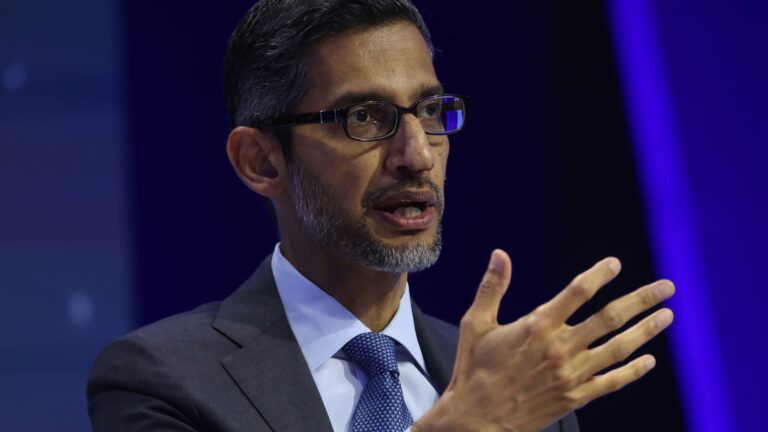Google Scraps Diversity ‘Aspirations’ as a Federal Contractor
In a significant policy reversal, Google has decided to scrap its diversity "aspirations," as required by its status as a federal contractor. This decision marks a pivotal moment for the tech giant as it navigates the sensitive terrain of diversity, equity, and inclusion (DEI) amidst increasing scrutiny and changing guidelines from federal authorities.
Understanding the Policy Shift
Google’s previous diversity goals, known as "aspirations," were set to increase the representation of minorities and women within its workforce. These targets aimed for a more inclusive environment and were intended to align with broader social goals of equity. However, as of 2023, the company has shifted its focus and removed these targets in light of new federal regulations that no longer necessitate specific diversity benchmarks for federal contractors.
The decision reflects a broader trend among companies navigating the complexities of heartily committed DEI initiatives while being sensitive to the evolving legal landscape. With federal contracts under intense scrutiny, companies like Google face the significant challenge of balancing compliance and corporate responsibility.
The Role of Federal Regulations
As a federal contractor, Google is subject to the guidelines established by the U.S. Department of Labor’s Office of Federal Contract Compliance Programs (OFCCP). According to the OFCCP, while federal contractors are encouraged to pursue diversity and inclusion, specific numerical quotas or aspirational goals are not mandated.
The Office has observed mixed reactions to mandated diversity measures. A recent report highlighted that only 33% of workers in the tech sector identify as women, a stark contrast to the nearly 50% representation of women in the overall labor market. Furthermore, people of color make up just 26% of the workforce in tech, despite their significant presence in the general workforce.
Implications for Google and the Tech Industry
This shift in policy has not gone unnoticed. Critics argue that removing diversity aspirations risks stagnating progress in a sector that has long been criticized for its lack of representation. Google’s decision may have a ripple effect throughout the tech industry, which is at a crossroads where it must redefine its commitment to DEI initiatives in light of financial sustainability and compliance requirements.
Data from a 2022 PWC report highlighted that companies actively engaged in diversity initiatives see improved organizational performance. In fact, firms in the top quartile for gender diversity on executive teams are 21% more likely to outperform on profitability. The implications of reduced diversity efforts may deprive companies like Google of significant competitive advantages in innovation and market reach.
What Lies Ahead
With this policy change, Google must navigate the dual challenge of maintaining talent acquisition and retention while addressing public sentiment regarding diversity and inclusion. A recent Harris Poll indicated that 76% of job seekers consider an employer’s commitment to diversity when evaluating job opportunities.
There’s also internal pushback from Google employees who advocate for continuing DEI efforts. In the wake of this announcement, many employees have voiced concerns, calling for a revision of the policy due to fears it would undermine the progress made in recent years.
The tech industry, already grappled with headline issues surrounding equity and systemic bias, may witness further scrutiny from both the public and regulatory bodies. Stakeholders are likely to demand transparent progress on diversity efforts, measuring outcomes and effectiveness rather than focusing solely on aspirational goals.
Conclusion
Google’s decision to scrap its diversity aspirations represents a seismic shift in the tech sector’s approach to DEI. As organizations reassess their diversity goals in light of changing federal guidelines, the balance between compliance and genuine commitment to diversity will be crucial. The long-term effectiveness of such policies will depend not only on regulatory compliance but on a fervent commitment to fostering an inclusive and equitable environment where all employees can thrive.
In a world increasingly driven by data, it remains to be seen how this change will affect workplace dynamics and organizational success. However, the importance of diversity cannot be understated, both in ethical terms and in the pursuit of company profitability and longevity at the forefront of innovation.







